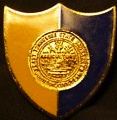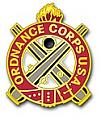Unobtrusive indicators of the "good [combat] officer":
* Distrust any officer with a perfect or near perfect record of efficiency reports. he is conforming to the existing value system and will have no interest in changing it.
* Look carefully at a man who gets low marks on "tact" and who "deviates from accepted doctrine." He may be creative.
* An officer who gets low marks on loyalty is especially valuable, for he is unwilling to acquiesce to his superior's policies without debate. He is likely to have an independent mind.
* Be suspicious of any officer who has accumulated awards for valour without having sustained physical injury. Trust a Purple Heart wearer.
* Distrust any officer who has had "all his tickets punched" and who sports an array of staff awards on his chest. He is likely to be a manager playing the system.
* Distrust all officers who use "buzz words" and have a poor vocabulary. they tend to be managers of the most obsequious type. True leadership is likely to be foreign to them.
* Trust a man who heads for the sound of the guns and has repeated tours of combat and command duty at all unit levels; it is preferable that he have only minimal exposure to staff work.
* Trust an officer who was seen by his men in combat and whose command performed well and showed low rates of drug use, fragging, body counting, etc.
* Search for the officer whose readiness reports indicate a high percentage of equipment which is deficient. He is a man addicted to the truth.
- Gabriel/Savage, Crisis in Command, 1978














Bookmarks